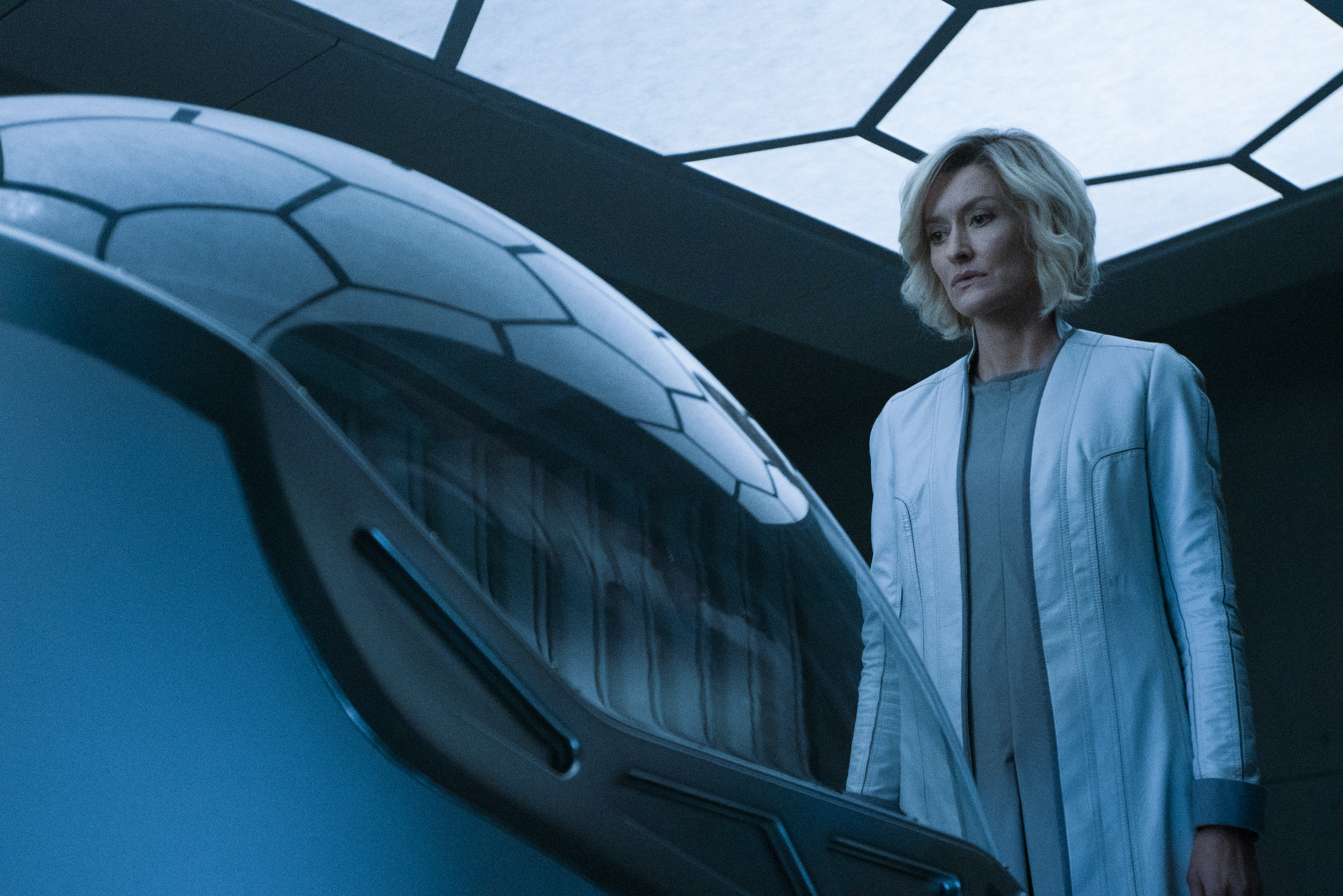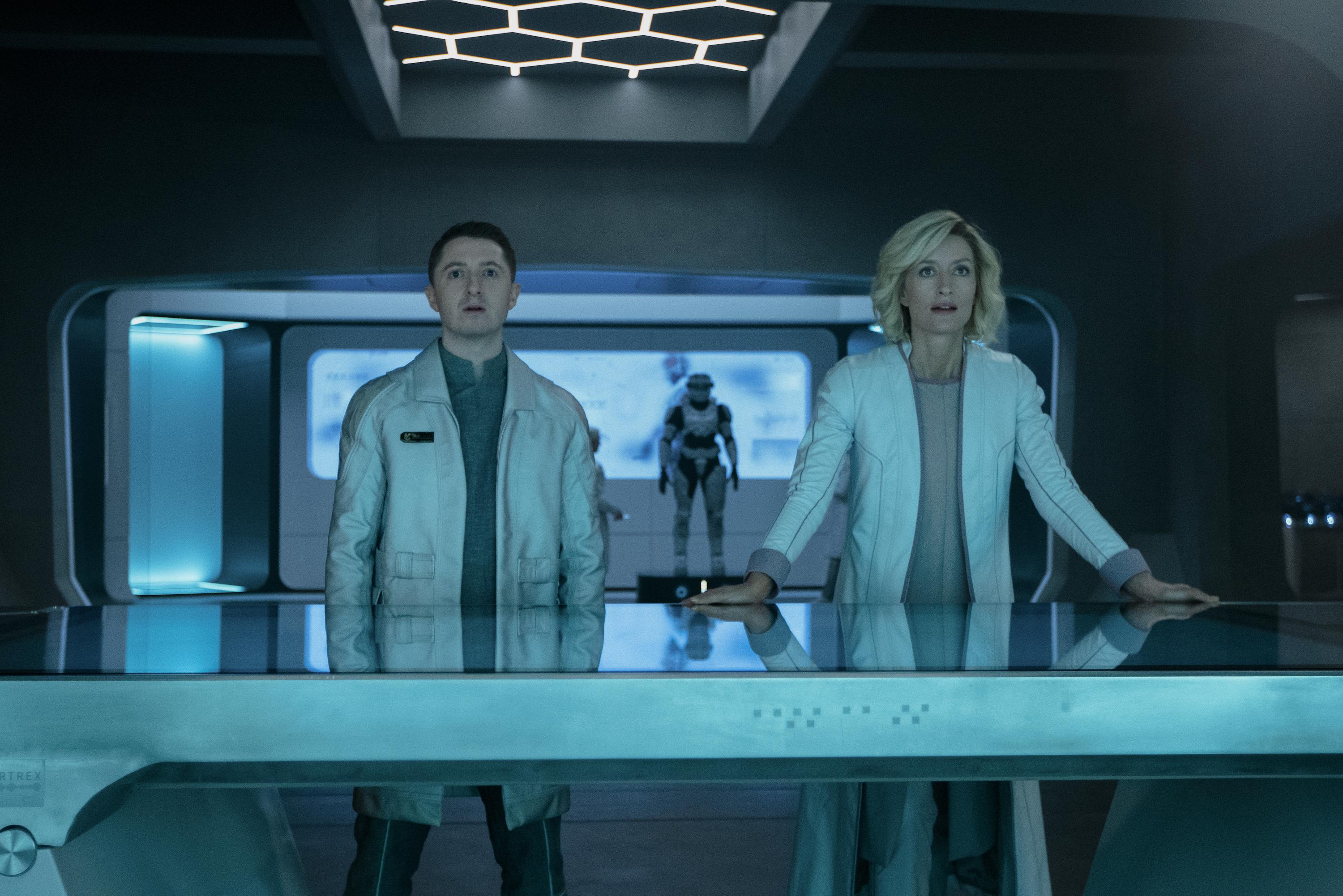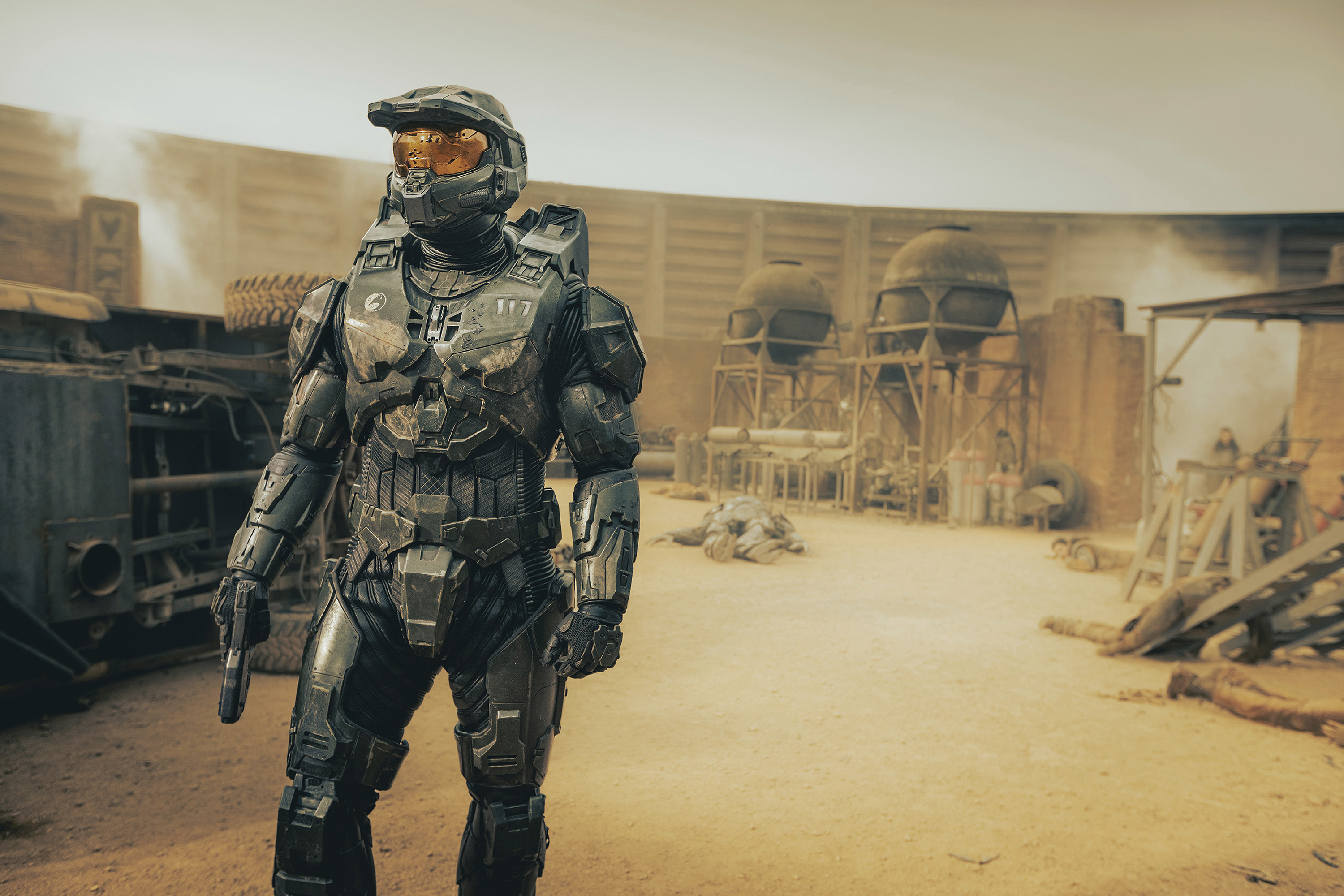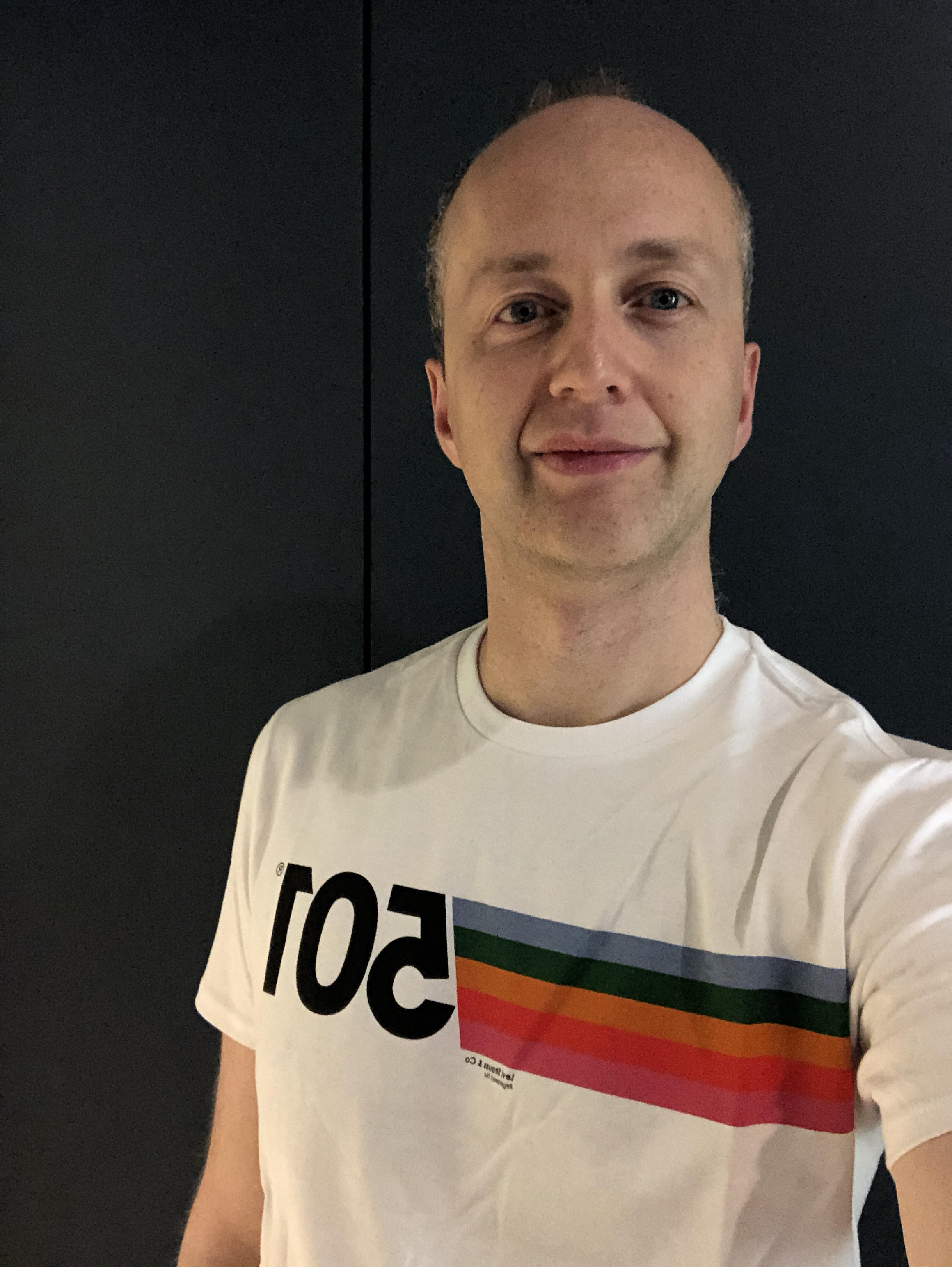Halo's Natascha McElhone: 'Halsey's brain goes to places it shouldn't go to!'
Natascha McElhone reveals why she's fascinated by the morals of her character in the video game spin-off.

The latest updates, reviews and unmissable series to watch and more!
You are now subscribed
Your newsletter sign-up was successful
Want to add more newsletters?

ONCE A WEEK
What to Watch
Get all the latest TV news and movie reviews, streaming recommendations and exclusive interviews sent directly to your inbox each week in a newsletter put together by our experts just for you.

ONCE A WEEK
What to Watch Soapbox
Sign up to our new soap newsletter to get all the latest news, spoilers and gossip from the biggest US soaps sent straight to your inbox… so you never miss a moment of the drama!
Natascha McElhone is bringing an iconic video game character to life in the TV adaptation of Halo, currently airing on Paramount Plus in the US and now also in the UK.
As Dr Catherine Halsey, the creator of the Spartan supersoldiers who are tasked with defending the human race against the alien threat known as the Covenant, Natasha portrays one of the most quietly powerful figures in the show's universe — but Dr Halsey is an enigmatic figure whose true motivations aren't always easy to pin down.
We spoke to Natascha to find out more about Dr Halsey, and why the moral grayness of her character appealed to her...
Natascha McElhone on what drew her to the character
"I suppose it's that she's a scientist, and a maverick, which is the opposite of what I do. There's an awful lot of waffle that you can get away with being an actor, or someone in the humanities, whereas as a scientist you have to prove everything, and that interests me. And a good scientist doesn't just ignore conventional wisdom, but probably makes a special effort to break it — she has a brain that is in the habit of going to places that it shouldn't go. I guess her moral construct is different than anyone else's, because she's able to imagine a world that I think most of us can't yet."
What was it like as an actor to capture that morally gray area that she operates in?
"A lot of the conversations I had with the showrunner, writers and creators were around pacing, and remaining inscrutable for as long as possible, so you didn't get into the arena of just playing an archetype, the sort of moustache-twizzling Cruella De Vil or whatever. It would have been quite easy to go in that direction, I think, and then the audience would be able to write her off and maybe not bother to see things from her point of view. Hopefully what the show has managed to do is to put the audience in a different driving seat for each of the storylines.
"From Halsey's point of view, she's able to see life as we don't yet know it. Perhaps like Galileo, or someone being thought of as morally reprehensible in her own time, she will one day be seen as someone who saved humanity, by augmenting and sacrificing the lives of a few people in the short term, she saved the lives of future generations that she'll never meet. You could say, there's no direct approbation or social benefit she's getting from that, so it's altruistic. I find that fascinating — the philosophical side of how we judge humans."

The series follows Master Chief as he rebels against her programming and reconnects with his human feelings and memories. What does Halsey make of that?
"As with a lot of scientists, there's a very strong ego at play, but I think her curiosity will trump that ego. So she marvels when John [Master Chief] or Cortana [the AI that Halsey created] overrides the system that she thinks is pretty bulletproof — but the exponential growth of an AI is such that she'll end up surprising you. I think all those questions that are posited through the show are interesting and relevant to our lives. Like all good sci-fi, you're exploring morality catching up with technology. If we're going to put our trust in synthetic intelligence, we've got to do some big thinking."

How familiar were you with the video game franchise beforehand?
"I did due diligence — we did a sort of Halo boot camp, and I played the game a little bit, and my half-brother is a gaming journalist. I spent a day with a guy who'd spent three solid years of his life playing Halo — so that was really instructive. I did read up about the lore, but in a sense it wasn't so relevant for the character that I was playing. The game is huge — the number of websites that there are, the backlog of information that there is, it would take you years and years to read! This gave me a respect for the fanbase — these people are really committed, it's like becoming an expert in Greek mythology, there's years of accumulated wisdom around these characters and stories."
Did you have any concerns about how the fans would respond to a TV series based on the games?
"I realise it doesn't please every fan that we've even had the hubris to go and make a TV show from it — which is fine, you don't have to watch it, you can continue to play the games, there's no obligation!
"But I think if you've got a great storyline, this is what we do now — we tell it in many different forms. I'm sure there are always purists who want to stuck with the original material, but it's been really fun to come into that world which I probably wouldn't have delved into otherwise."
Halo is now coming to the UK and the first episode will be shown on Channel 5 on Wednesday 22 June 2022 at 10pm (see our UK TV Guide for full listings). Channel 5 though is only showing the first episode. If you want to watch the whole series you will need a Paramount Plus UK subscription.
Meanwhile, Halo has already been released in the US and is also available on Paramount Plus. If you want to enjoy the whole series of Halo you need to sign up to Paramount Plus wherever you are in the world.
The latest updates, reviews and unmissable series to watch and more!

Steven Perkins is a Staff Writer for TV & Satellite Week, TV Times, What's On TV and whattowatch.com, who has been writing about TV professionally since 2008. He was previously the TV Editor for Inside Soap before taking up his current role in 2020. He loves everything from gritty dramas to docusoaps about airports and thinks about the Eurovision Song Contest all year round.

